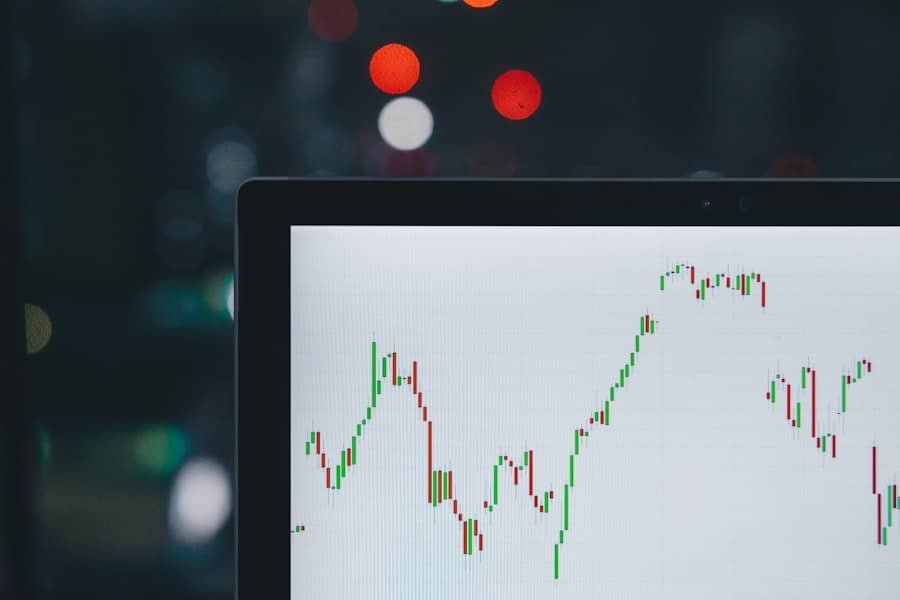Developing economies, also known as emerging markets, are nations undergoing industrialization and experiencing rapid economic growth. These countries often face challenges such as high poverty rates, inadequate infrastructure, and limited access to global financial markets. Global financial markets encompass the worldwide marketplace for trading financial instruments, including stocks, bonds, commodities, and currencies.
These markets are essential to the global economy, facilitating capital flow between countries and providing investment and growth opportunities. Developing economies frequently encounter difficulties accessing global financial markets due to factors such as limited financial infrastructure, political instability, and lack of creditworthiness. However, access to these markets is crucial for attracting foreign investment, financing infrastructure projects, and managing risks associated with currency fluctuations and interest rates.
In recent years, there has been increased recognition of the importance of integrating developing economies into the global financial system, leading to efforts to address the challenges these countries face in accessing these markets.
Key Takeaways
- Developing economies play a crucial role in global financial markets, but face unique challenges in accessing them.
- Challenges include limited access to capital, lack of infrastructure, and vulnerability to external shocks.
- Strategies for accessing global financial markets include policy reforms, capacity building, and leveraging international partnerships.
- International financial institutions provide support through funding, technical assistance, and policy advice.
- Case studies of successful access to global financial markets include China, India, and Brazil, showcasing the potential for growth and development.
- Accessing global financial markets can lead to increased investment, economic growth, and improved living standards in developing economies.
- Future trends and opportunities for developing economies in global financial markets include fintech innovation, sustainable finance, and increased collaboration with international partners.
Challenges Faced by Developing Economies in Accessing Global Financial Markets
Limited Access to Capital
One of the primary challenges is the lack of access to capital, as many developing economies struggle to attract foreign investment due to perceived risks and uncertainties. Additionally, these countries often have underdeveloped financial systems, with limited banking services and capital markets, which makes it difficult for them to raise capital domestically and internationally.
Political Instability
Political instability is another significant challenge that developing economies face in accessing global financial markets. Political unrest and uncertainty can deter foreign investors and lead to capital flight, making it difficult for these countries to attract the investment they need to grow their economies. Furthermore, developing economies often lack the creditworthiness and financial transparency required to access global financial markets on favorable terms, leading to higher borrowing costs and limited access to financing.
Currency Fluctuations and Interest Rate Volatility
In addition to these challenges, developing economies also face risks associated with currency fluctuations and interest rate volatility, which can make it difficult for them to manage their debt and attract foreign investment. These challenges can hinder the ability of developing economies to access global financial markets and can limit their potential for economic growth and development.
Strategies and Initiatives for Developing Economies to Access Global Financial Markets

Developing economies have implemented various strategies and initiatives to overcome the challenges they face in accessing global financial markets. One of the key strategies is to improve financial infrastructure by developing robust banking systems, capital markets, and regulatory frameworks. This can help these countries attract foreign investment, raise capital domestically, and manage risks associated with currency fluctuations and interest rate volatility.
Another important strategy is to enhance transparency and governance to improve creditworthiness and attract foreign investment. Developing economies can achieve this by implementing reforms to strengthen institutions, improve financial reporting standards, and combat corruption. These efforts can help build trust with international investors and make it easier for these countries to access global financial markets on favorable terms.
Furthermore, developing economies can also pursue initiatives to enhance their credit ratings and reduce borrowing costs. This can be achieved through fiscal discipline, sound monetary policies, and efforts to reduce public debt. By demonstrating a commitment to responsible fiscal management, these countries can improve their creditworthiness and attract foreign investment at lower costs.
In addition to these strategies, developing economies can also explore alternative sources of financing such as multilateral development banks, sovereign wealth funds, and public-private partnerships. These sources of financing can provide these countries with access to capital on favorable terms and can help them finance infrastructure projects and other development initiatives.
The Role of International Financial Institutions in Supporting Developing Economies
International financial institutions play a crucial role in supporting developing economies in accessing global financial markets. These institutions, such as the World Bank, International Monetary Fund (IMF), and regional development banks, provide these countries with access to financing, technical assistance, and policy advice. They also play a key role in promoting financial stability, economic development, and poverty reduction in developing economies.
One of the main ways in which international financial institutions support developing economies is by providing them with access to financing on favorable terms. These institutions offer a range of financial products and services, including loans, grants, and guarantees, which can help these countries finance infrastructure projects, social programs, and other development initiatives. Additionally, international financial institutions can provide technical assistance and policy advice to help developing economies strengthen their financial systems, improve governance, and enhance transparency.
Furthermore, international financial institutions also play a critical role in promoting financial stability in developing economies by providing them with access to emergency financing during times of crisis. This support can help these countries manage external shocks, stabilize their economies, and avoid financial crises that could disrupt their access to global financial markets. In addition to these roles, international financial institutions also work with developing economies to promote sustainable development and poverty reduction.
They provide these countries with support for initiatives such as education, healthcare, and environmental conservation, which can help improve living standards and promote inclusive growth.
Case Studies of Successful Access to Global Financial Markets by Developing Economies
Several developing economies have successfully accessed global financial markets in recent years, demonstrating the potential for these countries to overcome the challenges they face. One notable example is India, which has made significant strides in accessing global financial markets through reforms to strengthen its financial system and improve governance. India has attracted substantial foreign investment and has issued sovereign bonds on international markets at competitive rates, demonstrating its creditworthiness and ability to access global capital.
Another case study is Chile, which has successfully accessed global financial markets through sound economic policies and reforms. Chile has attracted foreign investment and has issued sovereign bonds on international markets at favorable rates due to its commitment to fiscal discipline and responsible monetary policies. This has allowed Chile to finance infrastructure projects and other development initiatives while managing its debt effectively.
Furthermore, Vietnam has also made significant progress in accessing global financial markets through reforms to strengthen its financial system and improve governance. Vietnam has attracted foreign investment and has issued sovereign bonds on international markets at competitive rates due to its efforts to enhance transparency and build trust with international investors. These case studies demonstrate that developing economies can overcome the challenges they face in accessing global financial markets through reforms to strengthen their financial systems, improve governance, and demonstrate a commitment to responsible fiscal management.
The Impact of Accessing Global Financial Markets on Developing Economies

Attracting Foreign Investment and Stimulating Growth
One of the primary benefits of accessing global financial markets is that it allows developing economies to attract foreign investment, which can help finance infrastructure projects, create jobs, and stimulate economic growth. This investment can also facilitate the transfer of technology and knowledge from developed countries, helping these economies modernize their industries and improve productivity.
Managing Risks and Diversifying Financing Sources
Accessing global financial markets can also help developing economies manage risks associated with currency fluctuations and interest rate volatility. By accessing international capital markets, these countries can diversify their sources of financing and reduce their reliance on domestic funding sources, enabling them to manage their debt more effectively and reduce their vulnerability to external shocks.
Promoting Financial Inclusion and Reducing Poverty
In addition to these benefits, accessing global financial markets can promote financial inclusion by expanding access to banking services and credit for individuals and businesses in developing economies. This can help improve living standards, promote entrepreneurship, and reduce poverty by providing people with opportunities to save, invest, and access credit.
Future Trends and Opportunities for Developing Economies in Global Financial Markets
Looking ahead, there are several future trends and opportunities for developing economies in global financial markets. One key trend is the growing importance of sustainable finance and environmental, social, and governance (ESG) criteria in global capital markets. This presents an opportunity for developing economies to attract investment by promoting sustainable development initiatives such as renewable energy projects, climate adaptation measures, and social impact programs.
Another trend is the increasing use of technology in global financial markets, which presents opportunities for developing economies to leverage digital finance solutions such as mobile banking, digital payments, and fintech innovation. This can help these countries expand access to banking services and credit for underserved populations while promoting economic inclusion. Furthermore, there are opportunities for developing economies to access global financial markets through regional integration initiatives such as trade agreements and economic partnerships.
By collaborating with neighboring countries to harmonize regulations, facilitate cross-border investment, and promote regional capital markets, these countries can enhance their access to global finance while promoting economic cooperation. In conclusion, developing economies face several challenges in accessing global financial markets but have implemented various strategies and initiatives to overcome these obstacles. International financial institutions play a crucial role in supporting these countries in accessing global finance while case studies demonstrate the potential for success.
Accessing global financial markets can have a significant impact on developing economies by promoting economic growth while future trends present opportunities for further integration into global finance.
If you’re interested in learning more about how developing economies access global financial markets, you should check out The Econosphere’s blog. They have a variety of articles that delve into this topic and provide valuable insights into the challenges and opportunities faced by developing countries in accessing global financial markets. You can find the blog here.
FAQs
What are global financial markets?
Global financial markets refer to the interconnected system of financial institutions, such as banks and stock exchanges, and markets where individuals, companies, and governments can raise capital, invest, and trade financial assets on a global scale.
How do developing economies access global financial markets?
Developing economies can access global financial markets through various channels, such as issuing sovereign bonds, seeking foreign direct investment, participating in international trade, and obtaining loans from international financial institutions like the World Bank and the International Monetary Fund.
What are the benefits of accessing global financial markets for developing economies?
Accessing global financial markets can provide developing economies with opportunities to raise capital for infrastructure development, attract foreign investment, diversify their sources of funding, and access new technologies and expertise from international partners.
What are the challenges faced by developing economies in accessing global financial markets?
Challenges faced by developing economies in accessing global financial markets include limited access to affordable credit, currency exchange rate risks, regulatory barriers, and the potential for debt sustainability issues if borrowing levels are not carefully managed.
What role do international financial institutions play in helping developing economies access global financial markets?
International financial institutions, such as the World Bank and the International Monetary Fund, provide technical assistance, financial support, and policy advice to developing economies to help them access global financial markets and manage their financial integration effectively.








